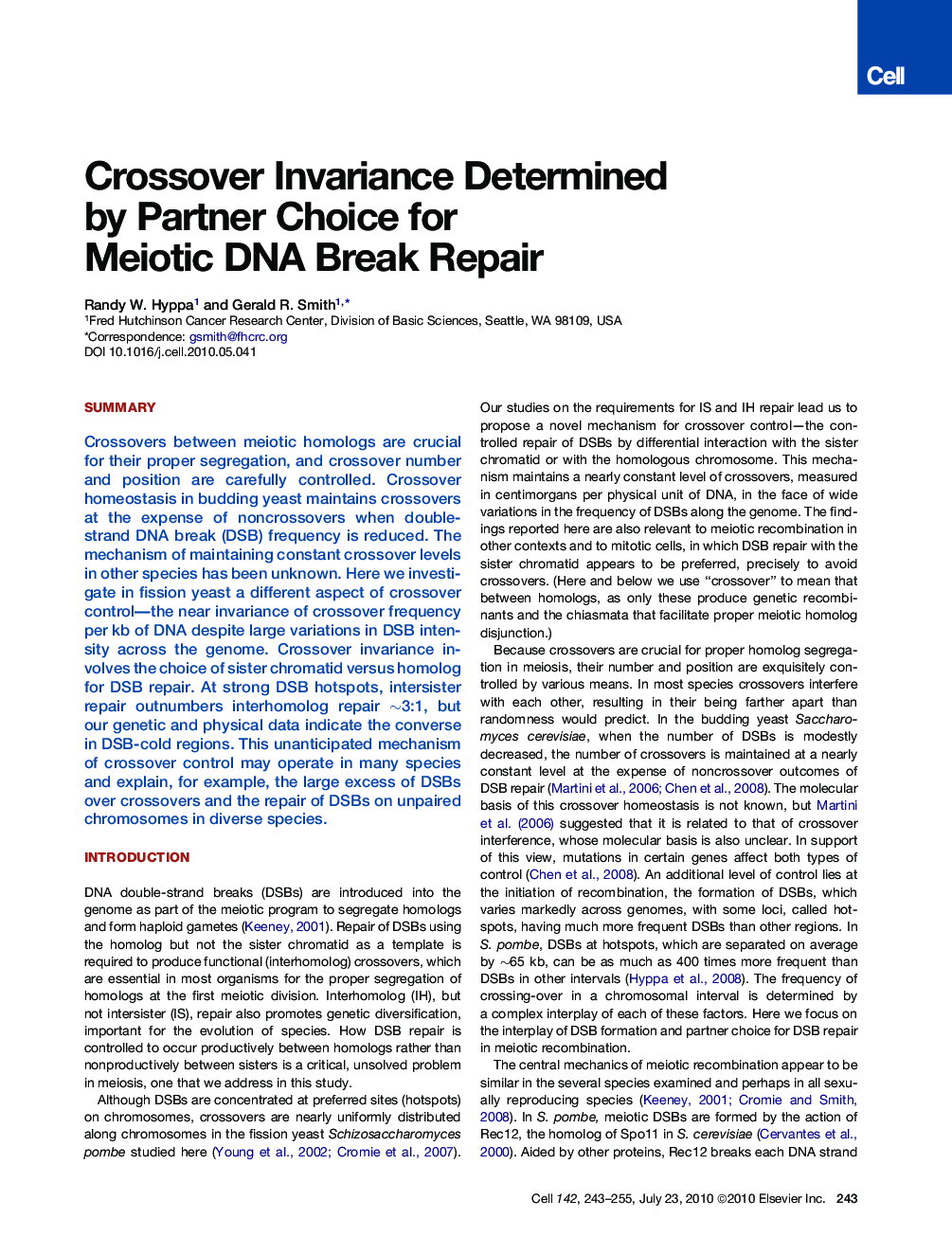| کد مقاله | کد نشریه | سال انتشار | مقاله انگلیسی | نسخه تمام متن |
|---|---|---|---|---|
| 2036257 | 1072254 | 2010 | 13 صفحه PDF | دانلود رایگان |

SummaryCrossovers between meiotic homologs are crucial for their proper segregation, and crossover number and position are carefully controlled. Crossover homeostasis in budding yeast maintains crossovers at the expense of noncrossovers when double-strand DNA break (DSB) frequency is reduced. The mechanism of maintaining constant crossover levels in other species has been unknown. Here we investigate in fission yeast a different aspect of crossover control—the near invariance of crossover frequency per kb of DNA despite large variations in DSB intensity across the genome. Crossover invariance involves the choice of sister chromatid versus homolog for DSB repair. At strong DSB hotspots, intersister repair outnumbers interhomolog repair ∼3:1, but our genetic and physical data indicate the converse in DSB-cold regions. This unanticipated mechanism of crossover control may operate in many species and explain, for example, the large excess of DSBs over crossovers and the repair of DSBs on unpaired chromosomes in diverse species.
Graphical AbstractFigure optionsDownload high-quality image (169 K)Download as PowerPoint slideHighlights▸ Meiotic DSBs occur at chromosomal hotspots; fission yeast crossovers are more uniform At DSB hotspots ▸ Holliday junctions are formed primarily with the sister, without Dmc1 ▸ In cold regions, Holliday junctions are formed with the homolog and require Dmc1 ▸ Partner choice for DSB repair largely accounts for the observed crossover invariance
Journal: - Volume 142, Issue 2, 23 July 2010, Pages 243–255